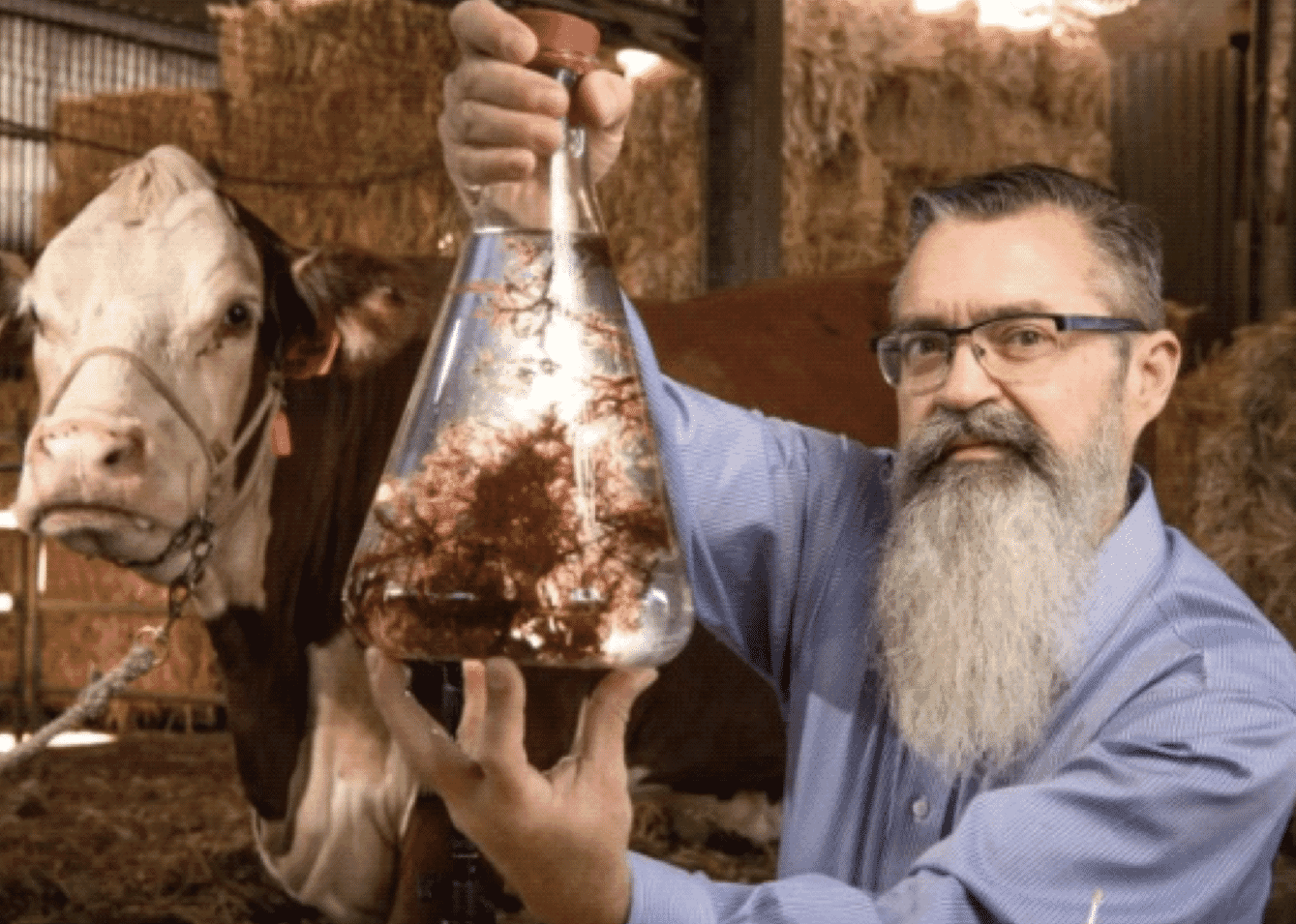
When processed correctly, Asparagopsis seaweed has been scientifically proven to reduce methane emissions in cattle by up to 90 percent, without negative effects on animal welfare or beef quality
Called Methane Tamer Beef Feedlot, the new feed contains Asparagopsis seaweed, and is the first in a line of products for a full suite of ruminant animals and farming approaches being developed under the Methane Tamer brand. It will initially be commercially available to partners in Australia, with global expansion coming in future years.
With its patented innovations in operational efficiencies and formulation, CH4 Global says that it has developed the highest quality, lowest cost and most efficacious product, designed for and with the end user. This natural product includes the entire Asparagopsis plant, as used in independent peer-reviewed animal feed studies, and is not a synthetic replication of only one of the active ingredients or an extract from Asparagopsis.
The new formulation reduces formation of methane in the animal rumen. When processed correctly, Asparagopsis has been scientifically proven to reduce methane emissions in cattle by up to 90 percent, without negative effects on animal welfare or beef quality, taste or texture. CH4 global claims that its proprietary formulation contains superior-quality Asparagopsis and other natural ingredients to support intake by feedlot cattle and easy inclusion in the feeding regimen.
The product will be made available to the company's existing commercial partners CirPro and Ravensworth, along with other partnerships currently under negotiation with commercial scale feedlots and food producers to radically reduce the methane footprint without altering the production process, and the opportunity to deliver premium, low-methane food.
"As we validate the business model with our initial partners – both the business model for us and for the farmers, we will expand to our next group of partners… Those that enable scaling in our launch market and initial expansion into new geographic markets. The key to our model, and what we uniquely do, is to drive a cost structure that not only enables, but also encourages usage of our product because it makes both economic and environmental sense to do so. It is also how we will achieve gigatonne scale impact before 2030," said Chris Rose, CH4’s chief business development officer, in a press release.
"What we have developed over the last four years is a platform that can quickly scale and be highly profitable. In fact, this new approach, plus our filed IPs on novel ways to dramatically drive down costs of growing and processing Asparagopsis, while preserving bioactivity of the final product, has ensured that we now have, without question, the lowest cost product on the market while maintaining the highest quality, natural/non-synthetic, product," added Steve Meller, CEO.




